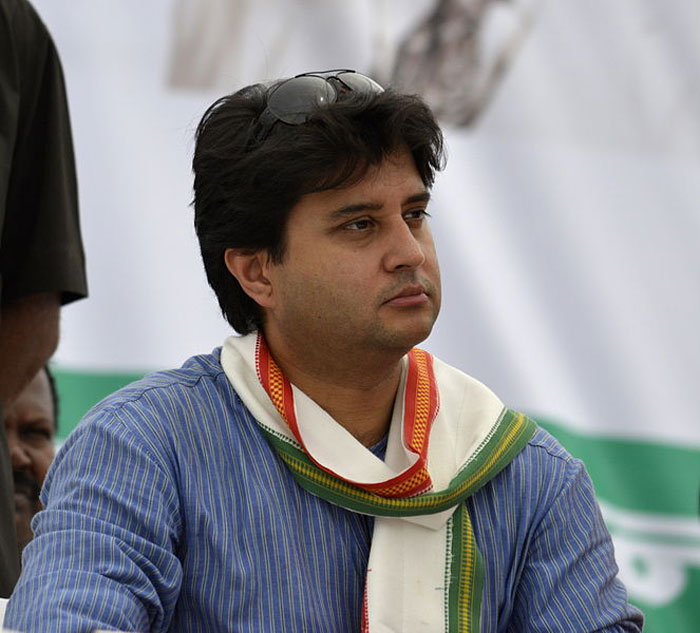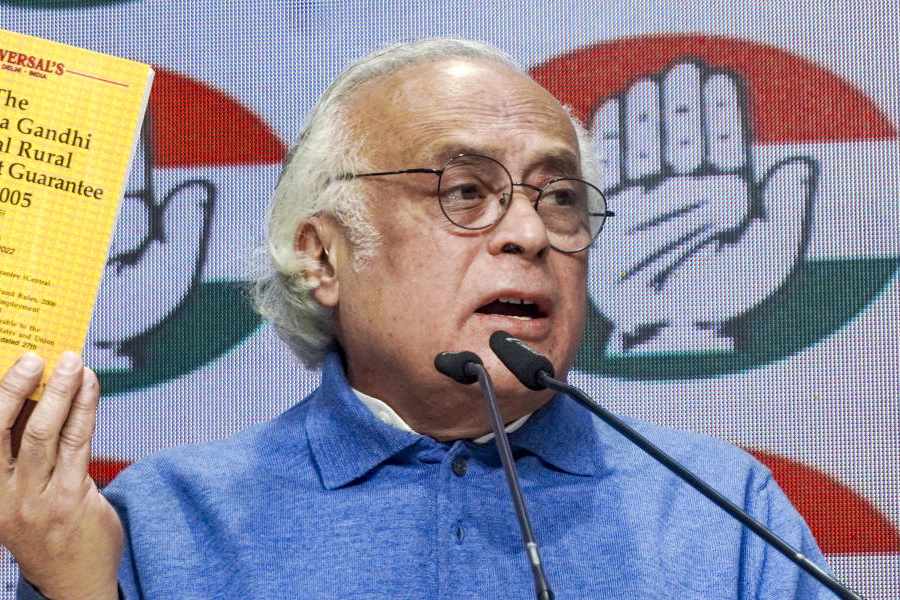Kamal Nath’s account of the fall of his government owed little to the vocabulary of a modern democracy. Instead, his narrative had the feel of a palace intrigue, conveyed through words like “king”, “conspiracy”, “betrayal”, “sinister”, “captive” and “murdered”.
After resigning as Madhya Pradesh chief minister hours before the Supreme Court-mandated floor test, Kamal Nath told a news conference: “Ek maharaj aur 22 MLAs ne BJP ke saath mil kar loktantra ki hatya kar di (A king and 22 MLAs murdered democracy with the help of the BJP).”
Twenty-two Congress MLAs loyal to Gwalior royal Jyotiraditya Scindia, who has defected to the BJP, had resigned and were holed up in a resort near Bangalore since early March, robbing Kamal Nath of the numbers he needed in a floor test.
“A conspiracy was hatched to pull my government down. Crores of rupees were spent to trigger the betrayal. Greedy MLAs loyal to a king were instigated to rebel. Chartered planes were hired to fly them to Bengaluru,” Kamal Nath said.
“They were held captive; not allowed to meet or talk to us or their families. The mafia I had acted against funded the sinister operation.”
The fallen chief minister rued that the Supreme Court had directed the floor test before his efforts to free the MLAs and enable them to democratically express their wish could fructify.
“I decided to resign because I don’t do the politics of ‘neelami’ and ‘sauda’ (auction and bargaining). I don’t believe in corrupt practices. I stuck to my values — that’s my weakness; that’s my strength.”
But he also issued a veiled warning: “In life, time doesn’t lie frozen. Things will change. There will be a tomorrow. Then, a day after tomorrow. The truth will come out. Everything will get exposed. People know I had the mandate to serve for five years. I was trying to change the face of Madhya Pradesh. I provided relief to 20 lakh farmers; 7.5 lakh more were about to be benefited. But the BJP, which looted the state for 15 years, got rattled in my 15 months.”
Kamal Nath’s resignation letter said: “I have always done the politics of morals in my 40 years of public life and upheld democratic values. What happened in Madhya Pradesh over the past two weeks is a new chapter of desecration of democratic values.”
The fall of the Madhya Pradesh government, however, throws up disturbing constitutional questions as it is almost a repeat of the way the BJP wrested the Karnataka government from the Congress-JDS coalition last summer.
There too, a group of JDS and Congress lawmakers were taken to Mumbai and not allowed to meet anybody till their resignations had been accepted and the government fell.
Although the Karnataka Speaker had disqualified these MLAs and barred them from fighting polls during the current House’s term, the Supreme Court allowed them to contest the by-elections. Most of them won on BJP tickets and became ministers.
In Arunachal, Congress MLAs defected to the BJP en bloc. Bulk defections also happened in Uttarakhand. In each instance, the beneficiary was the BJP, which also succeeded in selling the idea that the governments fell because of the Congress’s internal contradictions.
With the Supreme Court not venturing deeper into this new malaise to offer solutions so far, there is now fear of similar operations being carried out in Maharashtra, Jharkhand and Rajasthan to topple non-BJP governments.
However, the Congress will also need to look within. There was extreme discontent in Madhya Pradesh, which facilitated the BJP’s surgical strike.
Although the operation wouldn’t have been possible without Scindia’s defection, some party insiders believe that both Kamal Nath and veteran Digvijaya Singh had taken things for granted instead of demonstrating the sort of accommodativeness the government’s delicate positioning warranted.
Digvijaya had written to the rebel MLAs on Thursday, offering a dialogue if any of his acts had hurt them.
Many in the party, however, dismissed the internal discontent as a trivial matter and asserted that it had become almost impossible to keep the flock together under the abnormal pressures exerted and allurements offered by the BJP.
The loss of the Madhya Pradesh government also means one seat fewer in the Rajya Sabha. The defection of five MLAs in Gujarat, where there’s no Scindia-like figure, has inflicted similar damage on the Congress. One of its two Gujarat candidates – Bharatsinh Solanki and Shaktisinh Gohil – will lose the Rajya Sabha elections.
Political observers have suggested there’s a need for an institutional framework to prevent such manipulation of mandates, conceding that the anti-defection law has failed.
Senior lawyer Dushyant Dave had made a creative suggestion in the Supreme Court while arguing the Madhya Pradesh case: that the floor test be held after by-elections to the seats that fell vacant because of the resignations.
But the Supreme Court apparently didn’t think the situation was grave enough to warrant such innovation.











